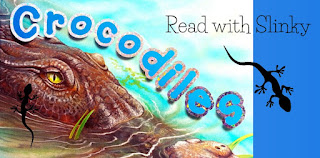The Power of Non-Fiction Reading: Why Children Should Embrace Fact Books
Importance of Non-Fiction Reading:
Expanding Knowledge Base:
Non-fiction books cover a vast array of topics, from history to science, biographies to current events. Each book is a treasure trove of factual information that can help children understand complex concepts and ideas. By reading non-fiction, children can broaden their horizons, learn new vocabulary, and gain a deeper understanding of the world.
Critical Thinking Skills:
Non-fiction books often present real-world problems and solutions, encouraging children to think critically. They learn to evaluate information, analyse arguments, and form their own opinions. This is crucial for developing a well-rounded, independent thinker.
Empathy and Perspective:
Non-fiction books, especially biographies and memoirs, provide insight into the lives of others. By reading about people from different cultures, backgrounds, and experiences, children develop empathy and understanding. This helps them appreciate diversity and become more compassionate individuals.
Encouraging Curiosity:
Non-fiction books are filled with fascinating facts and stories that can spark curiosity in children. They might develop an interest in space, animals, history, or technology, leading them to explore these subjects further. This curiosity is essential for lifelong learning and personal growth.
Connecting to the Real World:
Non-fiction books often relate to children's real-life experiences, making the content more relevant and engaging. Whether it's a book about how plants grow or a biography of a famous scientist, children can connect the information to their own lives, making learning more meaningful.
Promoting Literacy Skills:
Reading non-fiction requires a different set of skills compared to reading fiction. Children learn to navigate text features like headings, captions, and diagrams. They also encounter complex vocabulary and sentence structures that challenge their reading comprehension and fluency.
Inspiring Future Careers:
Exposure to non-fiction can ignite a passion for a particular subject, leading children to consider careers they may not have otherwise. A child who reads about marine biology might dream of becoming an oceanographer, or a history enthusiast might aspire to be a historian.
Non-fiction reading is a valuable tool for children's intellectual and emotional growth. It expands their knowledge, hones their critical thinking skills, fosters empathy, and encourages curiosity. By embracing non-fiction, children can gain a deeper understanding of the world and their place in it. As parents and educators, we should encourage children to explore the diverse world of non-fiction literature and discover the wonders it holds.




Comments
Post a Comment
Hi there, Thanks for taking the time to share.